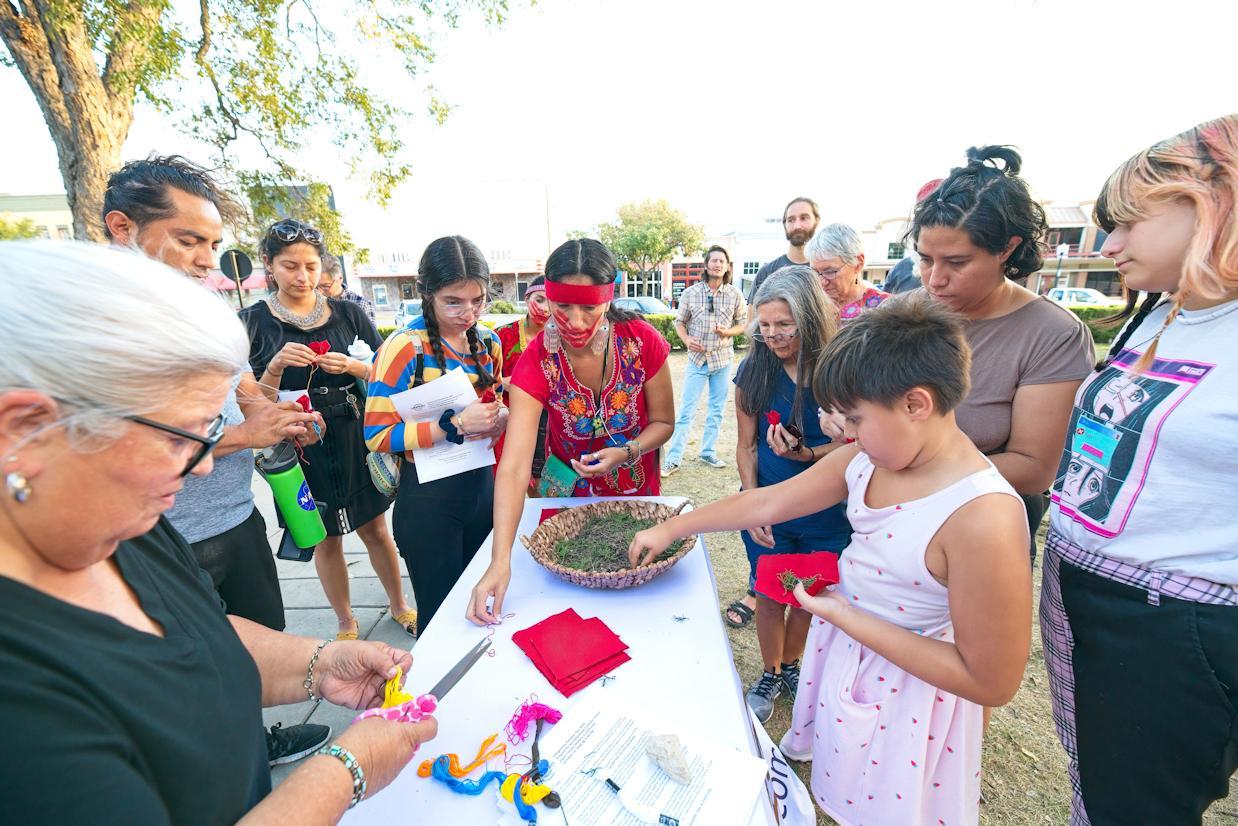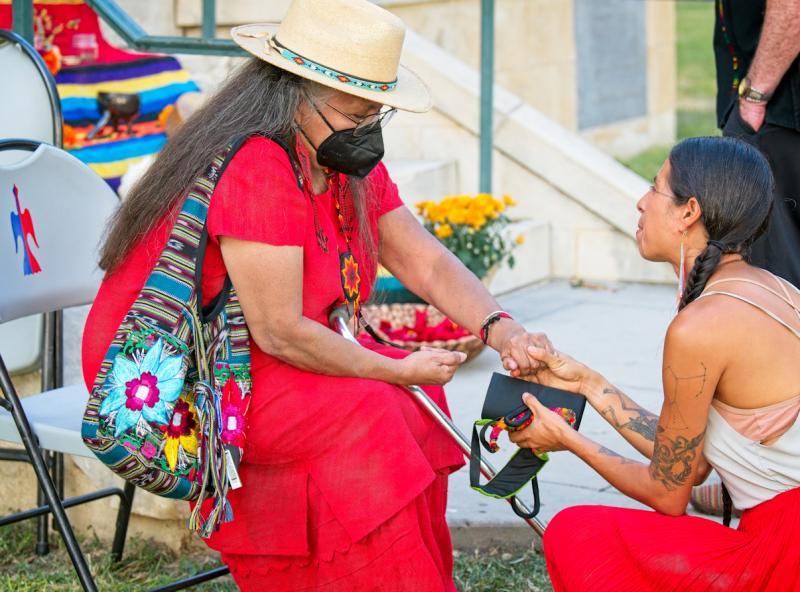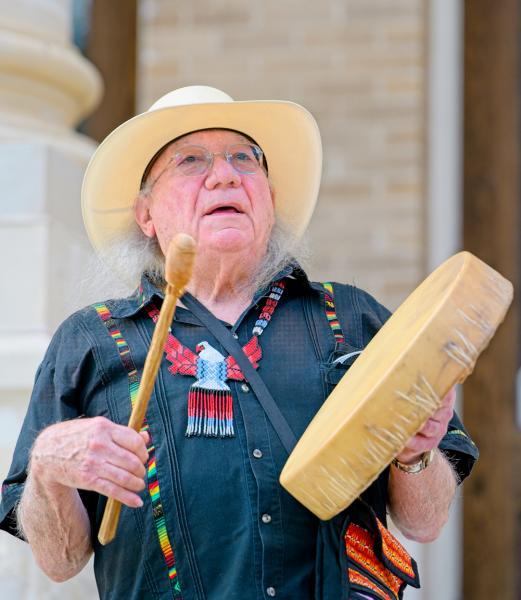
The Indigenous Cultures Institute held its 2nd Annual Prayer Rally at the courthouse on Monday to pray for an Indigenous Cultures Institute to connect Hays County to its “ancient and beautiful past.”Above, prayer rally participants make prayer ties, which were cut from red cloth and hold mountain cedar. Photos courtesy of Rene Renteria/Indigenous Cultures Institute
PRAYING FOR A CAUSE: Prayer rally takes place for Indigenous Cultures Center
The Indigenous Cultures Institute hosted its 2nd Annual Prayer Rally at the courthouse on Monday to pray for an Indigenous Cultures Institute to connect Hays County to its “ancient and beautiful past.”
On Monday evening, approximately 30 to 40 people joined rally organizers on the courthouse steps to make and bless prayer ties.
The prayer ties are cut from red cloth and hold mountain cedar. Maria Rocha, a member of the Board of Elders of the Indigenous Cultures Institute, says cedar has a “spiritual tie and a physical tie” to Hays County.
“Typically, there are different materials that you can use with prayer ties,” Rocha said. “You can use tobacco, sage, or cedar. If you make your prayers out of local plants, it’s more meaningful because this is their homeland, it’s the homeland of the cedars, and it’s the homeland of the people.”

Above, Maria Rocha receives thanks from participant.
The rally, held on Indigenous Peoples Day, takes place a year after the institute first submitted its application for $10 million of Parks and Open Spaces Bond funding to support the building of an Indigenous Cultures Center.
According to a recent press release, the Parks and Open Spaces Advisory Commission judged the Indigenous Cultures Center as a “Tier One,” or top priority proposal, and on May 18, 2021 San Marcos City Council passed a resolution in support of a shared land use agreement.
The institute says despite support from POSAC and the City of San Marcos and Hays County Commissioners are still sitting on their proposal.
Establishing a headquarters for the Indigenous Cultures Institute is a personal ambition of Rocha’s.
“We’re used to saying our community has always existed here, but it’s time for us to come out and share our culture with other communities, other non-Indigenous communities,” Rocha said. “We believe that our culture has very deep, important values that can help us with some of the solutions we need for environmental change, some of the solutions we need for systemic changes in legal systems and economic systems, social systems.”
“We believe that our people have some good ideas and ways of being indigenous that can be helpful in solving problems,” she added.
Institute representatives have stated their intentions of seeking land close to the Sacred Springs at the headwaters of the San Marcos River because the proximity to the springs and trails would anchor the center to a historic land trail and sacred water site, according to a recent press release.
As representatives of the Miakan-Garza band of the Coahuiltecan people put it, “This area is [our] creation site, where people emerged from the lower world to populate Mother Earth.”

Above, Dr. Mario Garza sings a blessing during Monday’s prayer rally.
Rocha said once the center is built, programming could include art, language classes that teach Coahuiltecan ideas, classes on training teachers to educate children using an “indigenous way of teaching,” and dance performances.
Rocha said many people who are Hispanic or identify as Hispanic in Hays County have Coahuiltecan ancestry. The Coahuiltecans were a band of Native Americans who lived in the Hays County region for 13,000 years and were considered the “original Texas Indians,” as Rocha puts it.
“A lot of people think that we disappeared, but we’re all still here,” she said.











